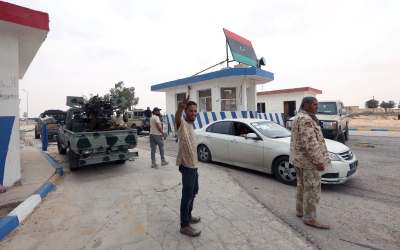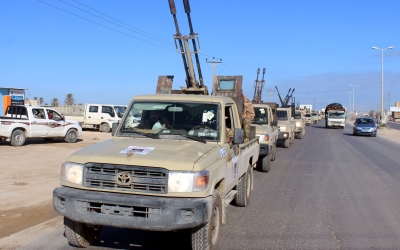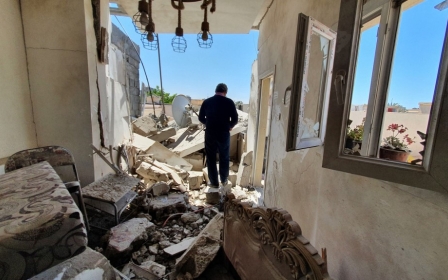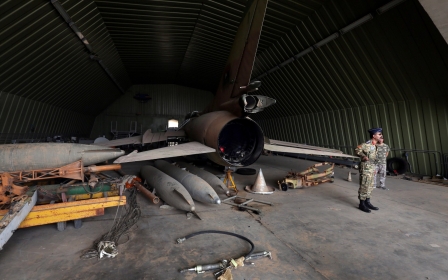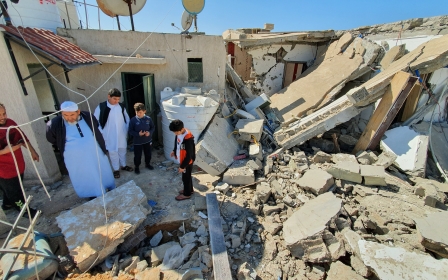Russian fighters reportedly flown out of western Libya after Haftar retreat
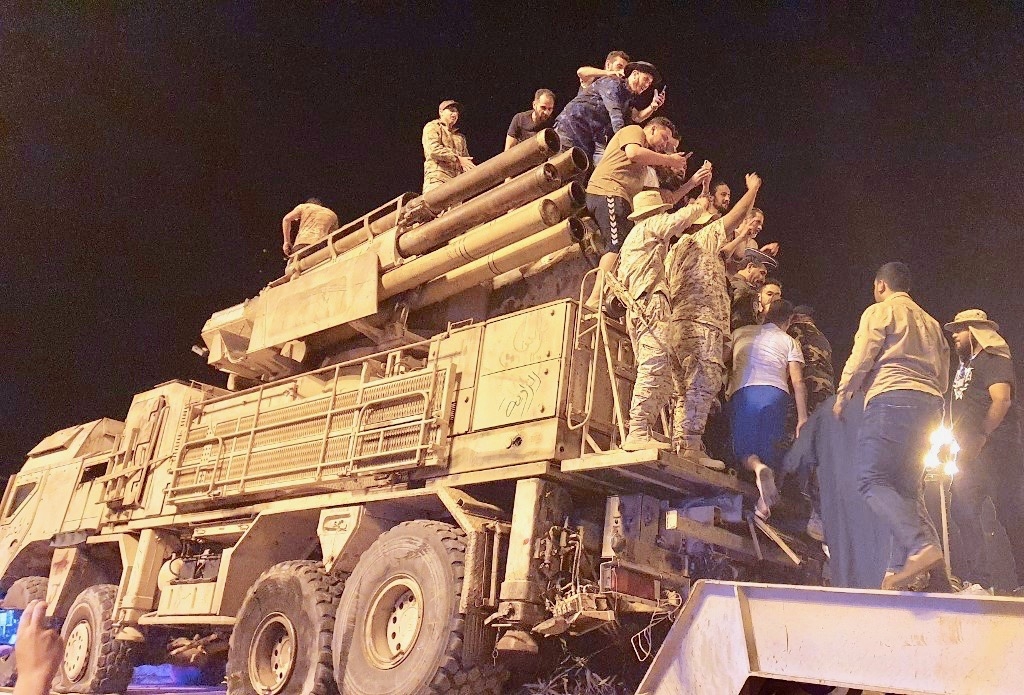
Russian fighters in Libya were flown out of a town south of Tripoli by their Libyan allies after retreating from the front lines, the town's mayor said.
The reported departure of the Russian mercenaries is another blow to the Libya National Army (LNA) of eastern Libyan military leader Khalifa Haftar and his foreign allies.
Haftar's forces, backed by Russia, Egypt and the United Arab Emirates, have been trying to capture the capital for 13 months, but have suffered a series of defeats in recent weeks in fighting against Turkey-backed forces of the Tripoli government.
In the past two days, LNA forces have withdrawn from some positions in southern Tripoli in what they described as a humanitarian gesture. Forces allied to the internationally recognised government re-entered some of those areas.
Libya has been without central government control for nine years, and since 2014 it has been divided between two main rival governments in the east and the west. The conflict has turned into a proxy war between the foreign allies of the two sides.
The Russian fighters allied to the LNA retreated with their heavy equipment from the capital to the airport of Bani Walid, a town about 150km (93 miles) southeast of Tripoli, said Salem Alaywan, Bani Walid's mayor.
He told Reuters the Russians had now been flown out of western Libya to Jufra, a remote central district and LNA stronghold.
According to a leaked United Nations report, Russian private military contractor, the Wagner Group, deployed about 1,200 mercenaries to Libya to strengthen Haftar's forces. They have been identified using equipment typically reserved for Russia's armed forces, Al Jazeera reported.
UN monitors identified more than two dozen flights between Russia and eastern Libya from August 2018 to August 2019 by civilian aircraft "strongly linked to or owned by" the Wagner Group or related companies.
LNA spokesman Ahmed Mismari denied any foreigners were fighting with his force.
Still, the Russians' presence has been widely documented by diplomats and journalists. Pictures purportedly showing Russians, some sitting on trucks, in Bani Walid were posted on social media.
Russian private military contractors have clandestinely fought in support of Russian forces in Syria and Ukraine, Reuters has previously reported, but the Kremlin denies it uses private military contractors abroad.
The Tripoli government, known as the GNA, has with Turkish help made recent strides, seizing a string of towns from the LNA, capturing the strategically important al-Watiya airbase and destroying several Russian-made air defence systems.
Claudia Gazzini, Libya analyst for the International Crisis Group, said that the GNA's control of al-Watiya effectively meant "increased penetration of Turkish influence in western Libya".
Last week, after a strike by Turkish drones, Libyan government forces moved in and occupied al-Watiya, which had been one of Haftar’s most important military assets.
The drones knocked out at least three “bomb proof” cement hangers that stored aircraft and protected two Russian Pantsir air-defence systems. One of the Pantsirs was crushed when the entire structure collapsed on it; the second one, parked inside a shelter, was burned by the blast but not destroyed, according to the AsiaTimes.
It was later taken by government forces, put onto a flatbed truck, and paraded around Tripoli. There is speculation the Pantsir is now on its way to Turkey for analysis.
"The withdrawal of the Russians from the greater Tripoli area is a very meaningful event because it deprives the LNA of its most effective, best-equipped foreign fighting forces on that key front," said Jalel Harchaoui, a research fellow at the Clingendael Institute.
The LNA still holds the town of Tarhouna, south of Tripoli, with the help of a local armed group.
Middle East Eye propose une couverture et une analyse indépendantes et incomparables du Moyen-Orient, de l’Afrique du Nord et d’autres régions du monde. Pour en savoir plus sur la reprise de ce contenu et les frais qui s’appliquent, veuillez remplir ce formulaire [en anglais]. Pour en savoir plus sur MEE, cliquez ici [en anglais].


